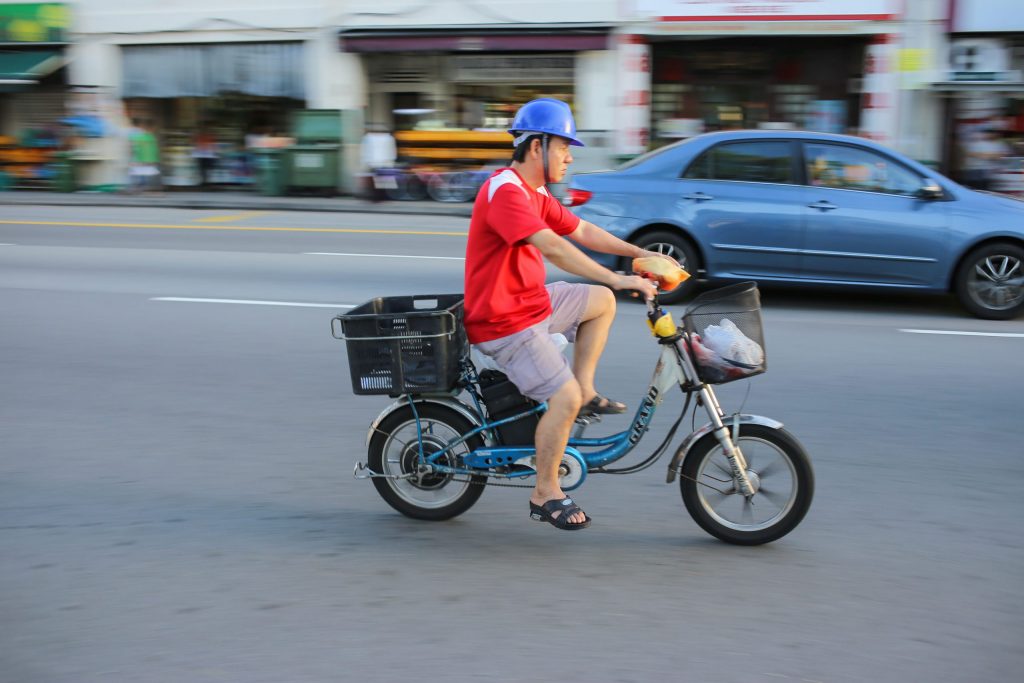Rider training a great start, but challenges lie ahead
June 16, 2021

In a Straits Times editorial, Professor Jack Qiu (NUS Communications and New Media) asserts that skills training for delivery riders across all major food delivery platforms has been inadequate. While noting GrabFood’s new occupational and safety training initiative — a program that aims to impart skills such as protective riding, package handling, and riding with a delivery load — is a welcome development, Prof Qiu outlines three key challenges that stand in the way of ensuring sustainable working conditions for both delivery riders and the larger labor force.
The first challenge is developing effective on-the-job training that values riders’ safety. Drawing parallels between Hong Kong and Singapore, Prof Qiu cites the occupational hazards that gig workers on app-based platforms in Hong Kong subject themselves to because of their brutal working conditions. The same occupational hazards are faced by delivery riders here in Singapore. His interviews with drivers and riders across major delivery platforms found that current initiatives are insufficient in dealing with these hazards. Watching training videos will never be a good substitute for on-the-job training. He argues that Singapore’s major delivery platforms have to be serious about developing effective training programs to ensure riders’ well-being.
The second challenge is finding arrangements to bear the high upfront cost of training all riders. Prof Qiu points out that Grab’s newly developed training program should be compulsory for all riders without the proper training, regardless of whether they are new or existing employees. While expensive, Prof Qiu notes that the benefits of proper training for all riders outweigh the costs of their occupational hazards. Proper safety training can prevent riders from incurring additional medical costs that arise from dangerous riding. Prof Qiu also notes that intervening dangerous riding at the micro-level can potentially prevent a drainage on our public health system and ensure the sustainability of delivery riders in this line of work.
The final challenge lies in overcoming the problem of collective action and getting other major delivery platforms on board. Currently, only Grab has developed initiatives to improve the safety and well-being of its riders. However, Prof Qiu advocates for a more uniform high-quality training program across all of Singapore’s major delivery platforms. This will reduce occupational hazards that arise from delivery riding across the board.
Prof Qiu stresses that delivery riders stand to benefit if the major stakeholders come together to overcome these challenges. He believes that companies should go beyond corporate social responsibility to ensure the safety of their employees — in this case, delivery riders. He looks forward to a decrease in traffic accidents and work injuries involving delivery riders in Singapore and an increase in overall well-being and safety.
Read the article here!
